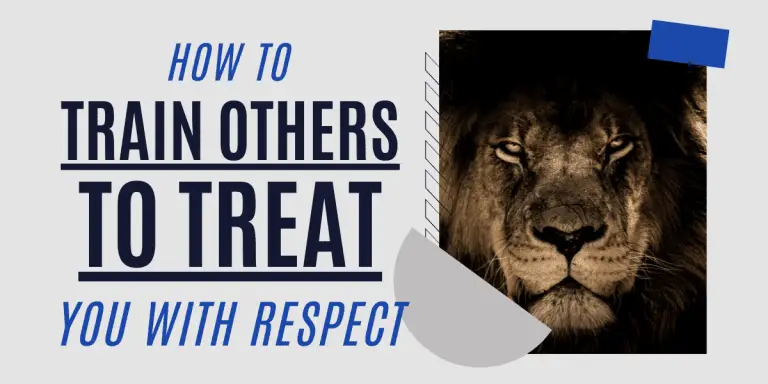How Others Treat You is a Reflection of Themselves
It is true that how others treat us is a reflection of themselves. Our interactions with friends, family, and colleagues can provide insight into their own values and self-worth. How they treat us can be a window into their mindset and motivations. We may find that some people are more respectful, compassionate, or understanding than others; this could be due to the way they were raised or the experiences they’ve had in life.

It is an age-old adage that how others treat you is a reflection of themselves. A person’s behavior towards us can often speak volumes about their character and values, whether we realize it or not.
We are all subjected to various forms of treatment from those around us, and learning to recognize the signs behind certain behaviors can be extremely beneficial in our personal growth.
We have all experienced different kinds of people who act according to their own internal rules, but ultimately, how they interact with us is determined by their self-perception. If someone shows love and respect towards us, it could indicate that they value themselves highly and anticipate similar responses from others as well.
On the other hand, if someone displays aggression or hostility towards us then this could suggest that they lack confidence in themselves, so they project these negative emotions onto those closest to them.
How you treat others is a reflection on yourself.
Treating people with respect and kindness is an important part of life. How you treat others not only speaks to your character, but it reflects on yourself as a person. It’s essential to remember that when we interact with people, their impression of us and our reputation is based on how we treat them.
One way to remember this concept is to think about the Golden Rule: “Do unto others as you would have them do unto you”. This simple phrase can help guide our interactions and remind us that whatever actions we take towards someone else are being reflected onto ourselves. Treating everyone with dignity and kindness will create a positive image for yourself in the eyes of those around you.
Respect goes both ways; by respecting others, they will be more likely to reciprocate these feelings back toward you.
How you see others is a reflection of yourself
It’s a common saying that how you perceive others is a reflection of yourself. It means that your attitude towards others is determined by your own beliefs and values. Your tendency to judge other people’s behavior tells us more about you than the person you are judging.
When someone does something we don’t agree with, it’s easy to be critical and make snap judgments without considering the full story. But when we look at things from another perspective, we can often gain insight into ourselves as well. This allows us to reflect on our behavior and choices in life, allowing us to improve our relationships with others and grow as individuals.
We need to remember that everyone has their own unique experiences which shape their decisions, so being open-minded will help us empathize with one another even if we don’t always agree with them or understand them fully.
What people say about you is a reflection of them, not you.
Regarding our self-esteem and well-being, what people say about us can have a serious impact. But it is important to remember that what people think or say about you has more of a reflection on them than it does on you. To truly gain the emotional health and growth needed, we must put trust in ourselves over the opinions of others.
We must realize that many times those who criticize or comment negatively on us are doing so out of their insecurities and anxieties.
They may be trying to make themselves feel better by making someone else feel worse; this is not a reflection of your worth as an individual but rather a sign of your internal struggles. Our mental health needs to understand that these opinions don’t define who we are but instead give insight into how we view the world.
How a person treats you is how they feel about you.
Many people believe that the way someone treats you is a reflection of how they feel about you. Psychological studies have shown time and time again that this sentiment holds, and can be seen in various aspects of life. People often subconsciously show their feelings for others through the way they treat them and how they interact with them.
For example, if someone spends a lot of time with you, buys you thoughtful presents, and makes an effort to stay in touch, then it’s safe to say that this person cares deeply for you. On the other hand, if someone avoids spending time with you or gets frustrated at your presence easily then it’s likely because this person doesn’t feel as close to you as others do.
In conclusion, it is important to remember that the way others treat you reflects more on them than it does on you. It is important to recognize when someone may be treating you poorly and not take it personally, as it is ultimately a reflection of their insecurities, fears, and experiences.
When faced with negative treatment from another person, take the time to reflect on the situation without placing blame or guilt on yourself. Instead, practice understanding and empathy for yourself and the other person.







